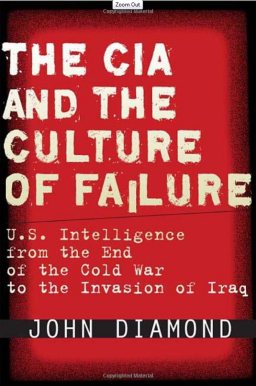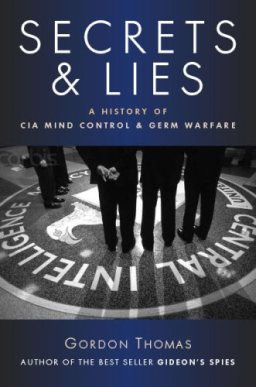Lobster Issue 57 (Summer 2009)
[…] And since then this ‘threat’ has worked a treat, ramifying and multiplying into an new, vast, hydra-headed, near-invisible, global threat, justifying vast new expenditure and military and intelligence expansion all over the world. But threat generation isn’t enough in itself; the threat also has to be legitimised; and, despite the DIA and Air Force […]
Lobster Issue 31 (June 1996)
[…] ‘Peter Wright’ was, according to The Times, 10 November 1952, ‘a professor of history in Cawnpore from 1937 to 1939. During the war he was in the intelligence service, and was Press censor at Delhi’. He was expelled by the colonial authorites in Kenya for being too friendly with members of Jomo Kenyatta’s Kenya […]
Lobster Issue 57 (Summer 2009)
[…] come and arrest him. Years later he claimed he got himself jailed to be off the streets when JFK was killed. He claimed he had been an intelligence officer who had been working with Lee Harvey Oswald and been asked by the KGB to kill Oswald to try to derail the assassination plot. (This […]
Lobster Issue 35 (Summer 1998)
[…] Pilger refers to the SAS fighting in Vietnam ‘with US special forces’. Again, I checked in Curtis and he cites one sentence from Bloch and Fitzgerald’s British Intelligence and Covert Action. which describes SAS personnel being attached to New Zealand and Australian SAS units. Well, I have no reason to doubt them; and no […]
Lobster Issue 48 (Winter 2004)
Srebrenica In Lobster 46 I noted that the publisher of Cees Wiebes’ Intelligence and the War in Bosnia 1992-1995 had declined to supply a review copy. Mr Wiebes subsequently informed me that the full report on Srebrenica, commissioned by the Dutch government, including the material which made up his book, is on-line, in English, […]
Lobster Issue 57 (Summer 2009)
[…] history of CIA mind control and germ warfare Gordon Thomas JR Books (www.jrbooks.com) 2007, h/b, £20 Gordon Thomas has written a number of books on the intelligence services and this has a glossy cover, voluminous appendices and some admiring quotes. But it adds little to what we already know about the CIA’s research […]
Lobster Issue 55 (Summer 2008)
[…] counsel of the UK and other similarly-minded allies. This is the very essence of the liberal progressive ‘third way’ model which has been promoted by the British intelligence and security establishment and which was central to the decision to follow the US into Afghanistan and Iraq. This model made one big assumption that seemed […]
Lobster Issue 50 (Winter 2005/6)
‘Britain, 2005. Saddam Hussein, still the ruler of Iraq and possessor of a long-range nuclear missile, seeks revenge on the west. Warned by intelligence reports of Saddam’s plan, the United States deploys a space-based missile shield, which will catch the Iraqi rocket before it gets to Washington. The key installation is based in Yorkshire […]



